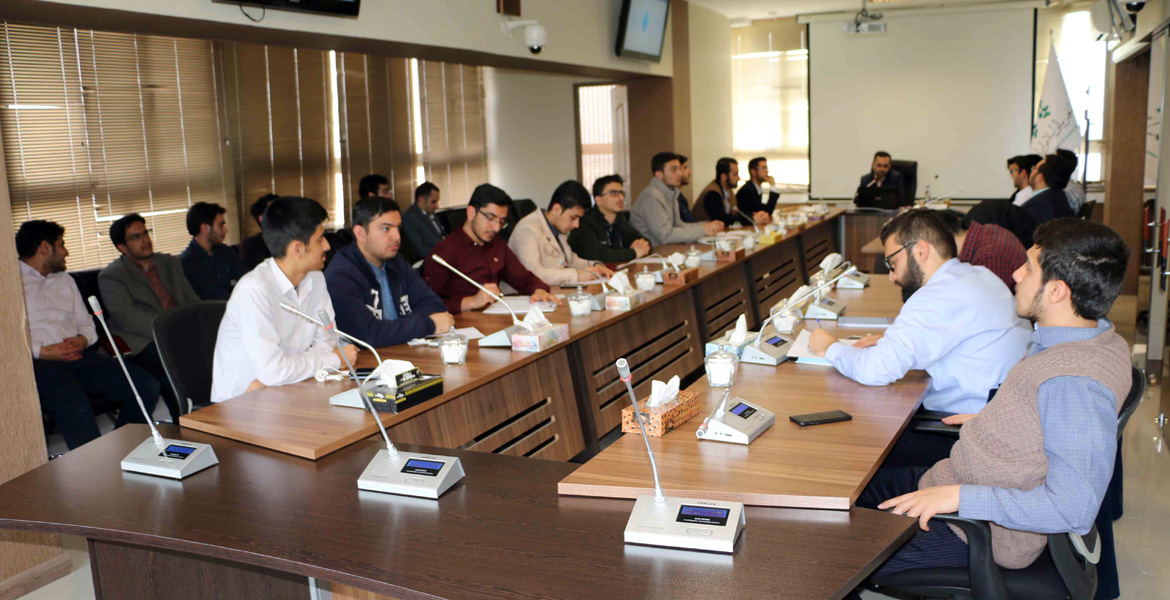
The IAIF held the 19th specialized session on corporate governance framework in Islamic banking on 12 Mar. 2018.
Ali Mahdavi Parsa, a researcher of Islamic finance and a member of the research committee of the Iranian Association of Islamic Finance, pointed to the importance of corporate governance in the country's economy, saying establishing Islamic economy and banking requires a macro and systematic view of Islamic banking, in addition to a micro look at Islamic contracts in banking, the management and supervision of banks should also be considered from an Islamic perspective.
Corporate governance is the science and method of administration to implement management and supervision of enterprises and banks and Islamic Sharia contracts. In order to achieve it there is a need for the administration system, management and Islamic supervision in banks.
Also, effective and appropriate corporate governance guarantees the observance of sharia principles in Islamic banking, reduces the risks of beneficiaries and Islamic macro economy and increases the efficiency and effectiveness of the Islamic banking system and should have a systematic view of corporate governance. Therefore, it is necessary to formulate and design a comprehensive corporate governance framework in Islamic banking.
The appropriate framework of corporate governance in Islamic banking (based on Imami Fiqh) includes the basic principles of corporate governance in Islamic banking, the principles of corporate governance in Islamic banking and corporate governance strategies in Islamic banking.
Corporate governance is a set of systems, processes and structures that use internal mechanisms such as board of directors, internal administrative and accounting controls, internal audit and risk management as well as extraorganizational mechanisms such as statutory supervision, legal systems, capital markets, independent shareholder supervision, independent audit of rating agencies to ensure that the rights of stakeholders, accountability, transparency and justice are in the business unit.
Mahdavi Parsa dealt with the basic aspects of the principles of corporate governance from the point of view of the Organization for Economic Development and Cooperation, saying paying attention to the stakeholders rights and owners key duties, observing justice and equality with shareholders disclosure and transparency, and the responsibilities of the board of directors are the principles of corporate governance from the perspective of the Economic Cooperation Development Organization.
He stated the framework of corporate governance includes three pillars of principles, mechanisms (or solutions) and tasks (or functions) and acknowledged. The principles of corporate governance are the rules and foundations that every corporate governance structure must be formed to achieve it. These principles are explicitly or implicitly mentioned in various documents. In 2004, for example, the Organization for Economic Co-operation and Development (OECD) defined and published its corporate governance principles based on the principles of fairness, transparency, accountability and calculability.
He introduced corporate governance strategies (or mechanisms) as tools that enable the implementation of corporate governance and provide corporate governance functions. These mechanisms can be classified into two groups: internal and external mechanisms.
Explaining the duties and functions of corporate governance, Mahdavi Parsa mentioned every corporate governance system has functions that are divided between specific elements and actors of corporate governance through specific mechanisms based on different patterns. The most important function of a corporate governance system is supervision, which includes sub-topics such as management, supervision, control, independent auditing, financial and legal consulting, and internal auditing.


